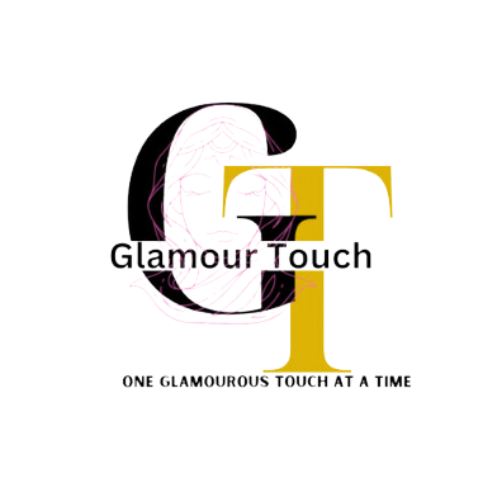Dry hair is a common challenge that many people face, often resulting from environmental factors, heat styling, and chemical treatments. It can lead to brittle strands, split ends, and an overall lackluster appearance. Fortunately, hair masks offer a powerful solution by deeply hydrating and repairing damaged hair. This article will guide you through understanding dry hair, the benefits of hair masks, and how to choose and apply the right one for your needs.
Understanding Dry Hair
Dry hair occurs when your hair doesn't retain enough moisture, leading to a lack of shine and elasticity. Several factors contribute to this condition:
- Environmental Factors: Sun exposure, wind, and pollution can strip moisture from your hair.
- Styling Damage: Frequent use of heat styling tools and chemical treatments can weaken the hair shaft.
- Improper Hair Care: Over-washing or using harsh shampoos can deplete natural oils.
Signs of dry hair include dullness, rough texture, and increased tangling. Understanding the science behind hair hydration is crucial to addressing these issues effectively.
Benefits of Using a Hair Mask for Dry Hair
Hair masks are designed to penetrate deeply into the hair shaft, providing essential nutrients and moisture. Here are some key benefits:
- Deep Conditioning and Moisture Retention: Hair masks infuse your strands with moisture, making them soft and manageable.
- Repairing Damaged Cuticles: They help seal and smooth the cuticle layer, reducing breakage and split ends.
- Enhancing Hair Shine and Smoothness: Regular use of hair masks can restore your hair's natural luster and silkiness.
- Reducing Frizz and Breakage: By strengthening the hair shaft, masks minimize frizz and prevent further damage.
For more insights on natural hair treatments, check out 13 Easy At-Home Hair Treatments to Rescue Your Hair and Scalp and 10 Natural Hair Treatment Tips for Hair Growth in 2024.
Key Ingredients to Look for in Hair Masks
When selecting a hair mask, consider the following natural ingredients known for their hydrating and restorative properties:
- Natural Oils: Coconut, argan, and olive oils are excellent for moisturizing and nourishing dry hair.
- Proteins and Amino Acids: These strengthen hair and repair damage by fortifying the hair structure.
- Vitamins and Antioxidants: Ingredients like vitamin E and avocado extract protect hair from environmental damage.
- Humectants: Glycerin and honey attract moisture to the hair, keeping it hydrated.
DIY Hair Mask Recipes for Dry Hair
Creating your own hair mask at home can be both fun and effective. Here are some simple recipes:
Coconut Oil and Honey Mask:

- Ingredients: 2 tablespoons of coconut oil, 1 tablespoon of honey.
- Instructions: Mix and apply to damp hair, focusing on the ends. Leave on for 20-30 minutes, then rinse thoroughly.
Avocado and Olive Oil Mask:
- Ingredients: 1 ripe avocado, 2 tablespoons of olive oil.
- Instructions: Mash and mix, apply evenly to hair, cover with a shower cap. Leave for 30 minutes before washing out.
These homemade masks offer a natural way to nourish and hydrate your hair, enhancing its texture and shine.
How to Choose the Right Hair Mask for Your Hair Type
Selecting the right hair mask involves considering your hair's unique needs:
- Hair Texture: Fine hair may require lighter formulations, while thick hair benefits from richer masks.
- Specific Concerns: Address issues like frizz, damage, or lack of volume with targeted ingredients.
- Product Recommendations: Look for masks that cater to your specific hair type and concerns.
Application Tips for Best Results
To maximize the benefits of your hair mask:
- Frequency: Use a hair mask once a week or as needed based on your hair's condition.
- Application: Apply to clean, damp hair, ensuring even distribution from roots to ends.
- Post-Mask Care: Rinse thoroughly and follow with a gentle conditioner if needed.
Top Recommended Hair Masks for Dry Hair
Explore some of the best commercial hair masks available:
-
Olaplex No. 3 Hair Perfector:
- Pros: Strengthens and repairs damaged hair.
- Cons: Can be pricey for regular use.
-
SheaMoisture Manuka Honey & Yogurt Hydrate + Repair Protein-Strong Treatment:
- Pros: Rich in proteins and natural oils.
- Cons: May be too heavy for fine hair.
-
Briogeo Don't Despair, Repair! Deep Conditioning Mask:
- Pros: Infused with vitamins and antioxidants.
- Cons: Not suitable for those with protein sensitivity.
Common Mistakes to Avoid When Using Hair Masks
Avoid these pitfalls to ensure optimal results:
- Overuse: Using masks too frequently can weigh down hair.
- Ignoring Ingredients: Be mindful of potential allergens and avoid harmful chemicals.
- Skipping Post-Mask Care: Follow up with appropriate styling and protection.

Conclusion
Incorporating hair masks into your routine can transform dry, lackluster hair into soft, shiny, and healthy locks. Whether you opt for DIY recipes or commercial products, the key is consistency and choosing the right ingredients for your hair type. Start your journey to healthier hair today by trying a recommended hair mask or creating your own at home. For more tips on natural hair care, explore 18 Natural Hair Treatments You Can DIY at Home.







